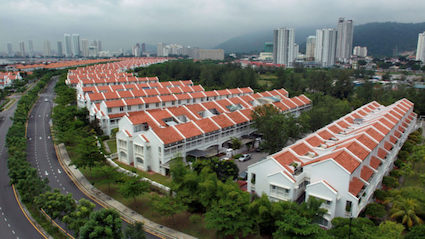Some questions about the FundMyHome scheme

TK Chua, Free Malaysia Today
I admit I am not a finance wizard able to come up with or understand sophisticated or complicated financing schemes. But from childhood, I was taught two things: first, there are no free lunches in this world and second, we can’t create something out of nothing.
The recent proposal for the FundMyHome scheme begets many questions. Right now, the scheme is still hazy, so some of my questions may be a little premature. But I think it is better to ask them sooner rather than later.
According to reports, house buyers only pay 20% of the value of the house but will get full use of the property for five years. The remaining 80% will be funded by various investors. The investors will get 5% return and be able to share the profit from the appreciation of the property in five years. Apparently the 5% annual return is derived from the earning of 20% of the value of the property held in an escrow account by the developers.
So here are my questions:
1. Am I right in saying this is a property investment scheme, not a home ownership scheme? If an owner owns only 20% of the house, in five years his/her ownership is still 20%, nothing more.
2. How does 5% annual return for investors come about? Can 20% (of the value of the property) deposited in an escrow account be big enough to generate 5% return for 80% of investors? If so, how?
3. In five years, everyone will expect “appreciation” to bring the respective returns. What if the property does not appreciate? What recourse do investors and owners have? Oh, I understand, it is the risk investors and owners must take.
4. If the property does appreciate in five years, the owners’ share is still 20%. How would they be able to “take over” the remaining 80% of the share which has also become more expensive? The owners may profit from their 20% share, but by then the properties would be so much more expensive for them to buy a replacement.
To me, the problem of home ownership is essentially due to incomes decoupling from property prices, i.e. either the income is too low or the price of property is too high, or both. Creative financing schemes cannot make this problem disappear. It will cause another distortion in the financial market if we are not careful – we are essentially encouraging securitisation, investment, lending and borrowing that is not sustainable.
I am not trying to throw a spanner into the scheme. But I am sure many Malaysians are interested and probably have the same questions as well. The purpose, as the finance minister pointed out, is for us to ask questions so that those promoting it will be more aware.
Fair enough, the promotors are talking about regulation and supervision by the Securities Commission of Malaysia and other regulators. The stock market is also regulated but I think easily more than 80% of the counters are “con jobs” that pay no dividends and deliver no appreciation, only a bloodbath to most investors.

